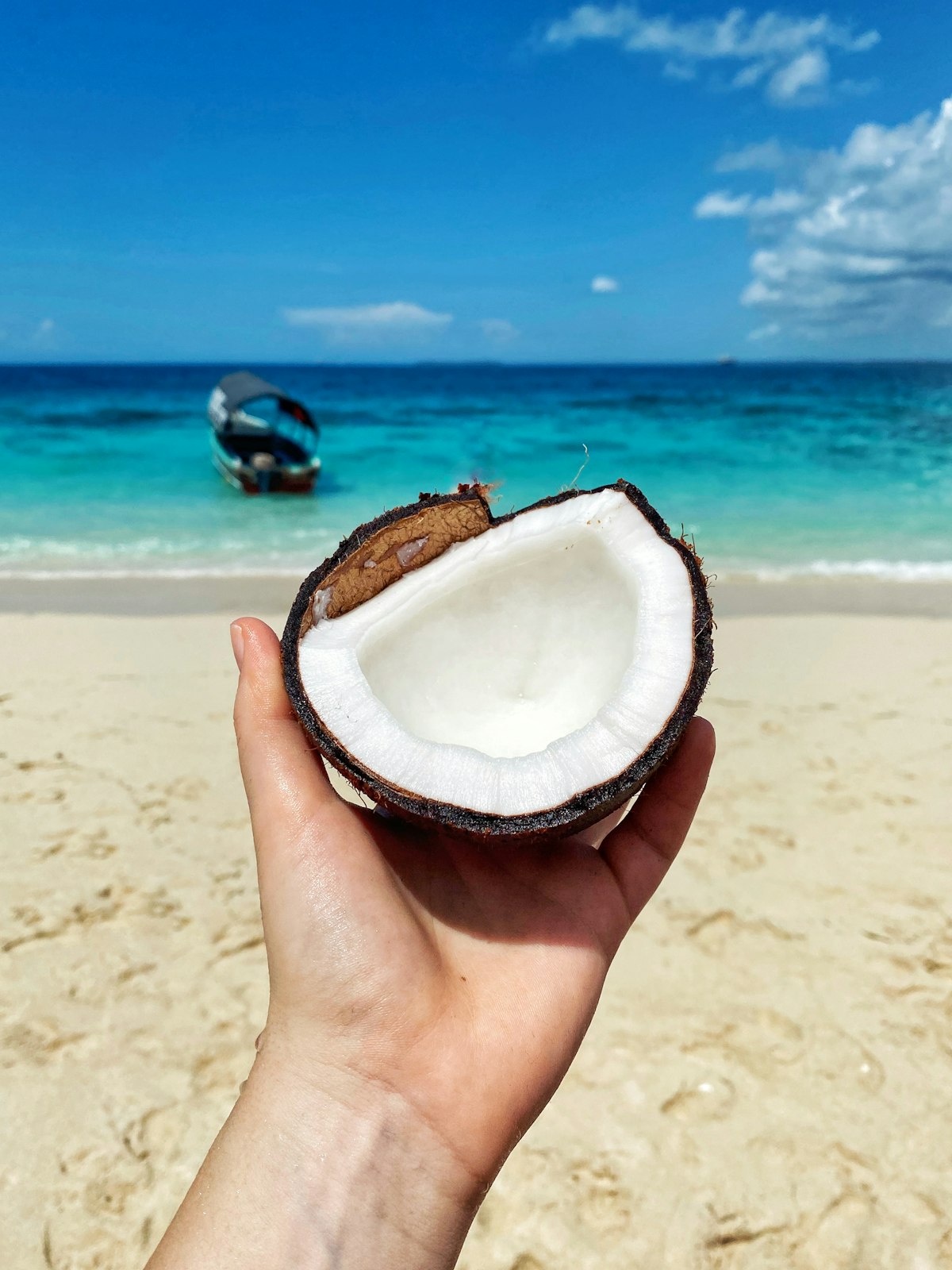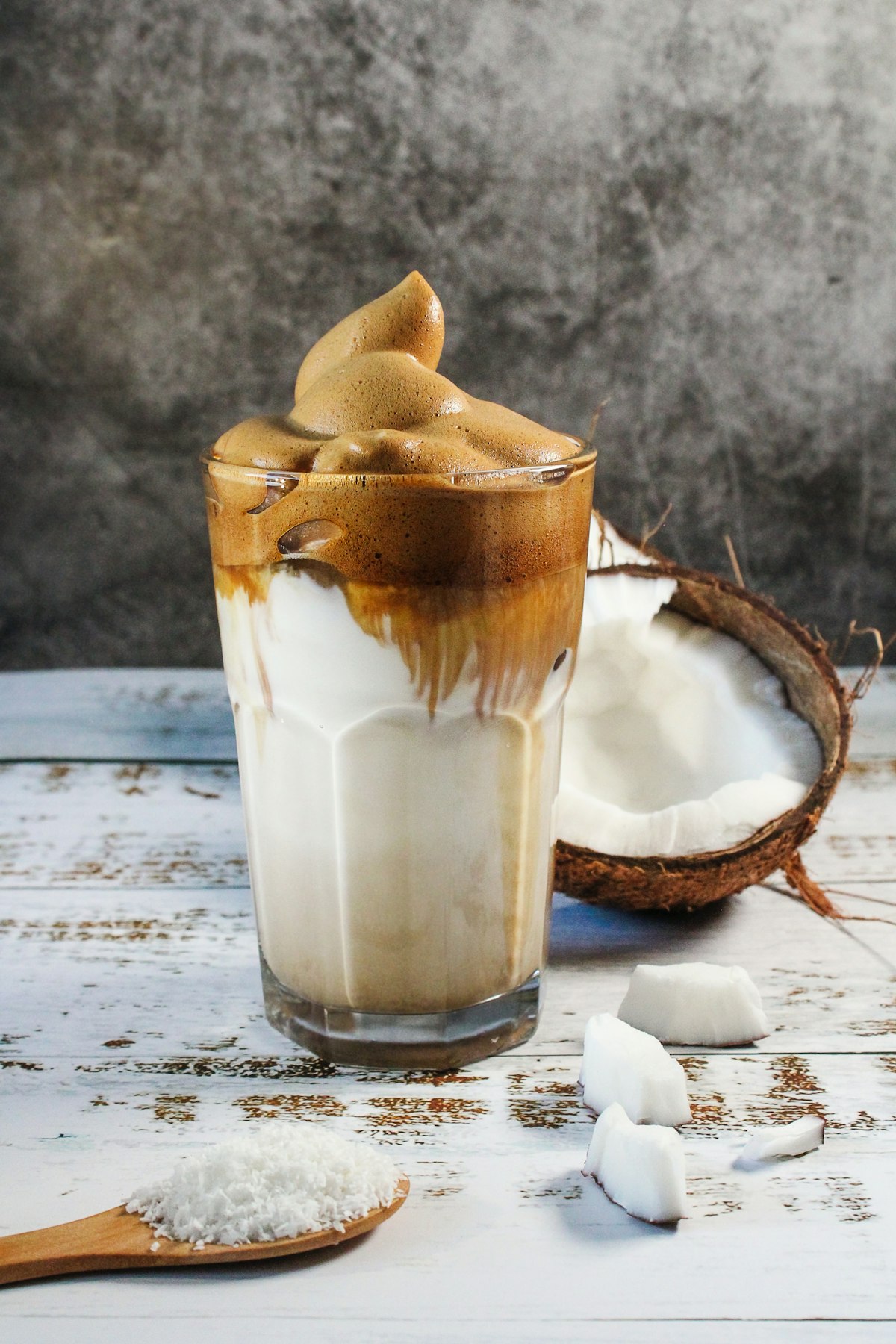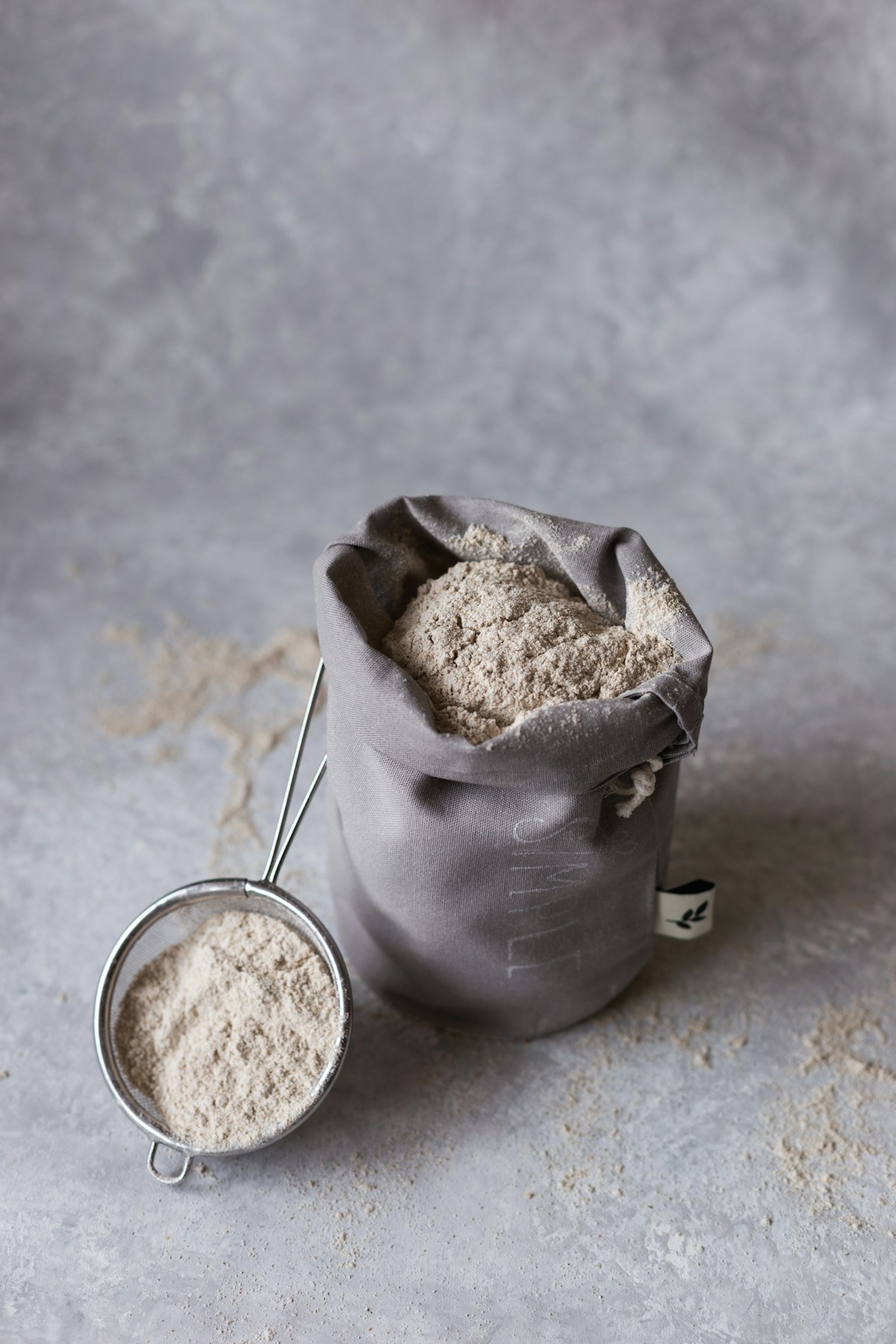It is a flour with a very high percentage of fiber: 30 g of coconut flour provide approximately 12 g of fiber, more than a third of the recommended daily intake of dietary fiber in adults. Therefore, it is satiating and positively influences intestinal health by presenting a prebiotic effect.
The flour can be present in almost any dish, ranging from the weathered, to the preparation of breads, pancakes or cakes.
There is nothing better than cooking a cake. Many of us grew up with this beautiful custom, thanks to the fact that our mother guided us down that path and now we are great fans of confectionery. If you identify with this, surely you are one of us, because we always look for an excuse to make a dessert or we cook it at the slightest provocation. Not at all? However, if you are alone, then you probably know what it means to eat an entire cake for more than a week.
Yes, frequently and especially when you don't share those desserts with anyone, the revenge of being overweight comes, because there is no person who can take so much sugar without reacting to it. And not only that, the flour also does its thing and often leaves us in places that are not exactly very healthy, when we consume it frequently and abundantly. It's not the best idea, but it's more common than you think.
Whether we like it or not, today most flours are refined and this is not very healthy, because they cause a rapid increase in blood glucose levels. This causes, when digested after this peak, the glucose decreases to generate a quite abrupt decrease at the brain level and then a feeling of tiredness appears (That is why you feel that you ate too much and that now you are somewhat heavier).
The flour can also be present in almost any dish, ranging from the weathered, to the preparation of breads, pancakes or cakes. That is why many people suffer when they are prohibited by their doctor or nutritionist. However, you have surely heard or read somewhere that there are a couple of healthier natural options, such as almond flour and of course, coconut flour.
The latter, unlike the other two, is an option that contains fewer carbohydrates, since it is ideally made from dried coconut meat. When coconut milk is extracted from the pulp, it dries out and lowers its temperature. It is then ground into a flour suitable for baking. Although there is refined coconut flour, the ideal is to acquire the one that is not so that you can consume it without worries.
In addition, this type of flour has a lot of benefits, which we are going to list right now so that you are encouraged to change the wheat flour for this healthy option or that you eat it with pleasure, in case you have a gluten allergy or celiac disease. .
1. Does not contain gluten
This type of flour is generally pure and gluten-free, making it perfectly healthy for those who are allergic or intolerant to this amino acid or who suffer from celiac disease. However, it is always very important to read the label, because it may contain some added ingredients that do contain gluten. If there is a risk of cross contamination, this must be clearly marked on the label.
2. High in fibers
This type of flour can contain 45g of fiber in 100g. The recommended amount of this nutrient, according to experts, is 30g per day, therefore, you can use it to weather your food, for example.
3. Helps control blood sugar levels
Coconut flour is high in fat and fiber, both of which work to slow the release of sugar into the bloodstream.
4. It is a good source of protein
Coconut flour is a source of protein providing 18g per 100g, compared to just 12g in the equivalent amount of wholemeal flour.
5. Take care of your cardiovascular health
Thanks to the fact that it contains a type of fat called medium chain triglycerides, there are studies that say that it lowers cholesterol levels, which would mean that this would have a cardiovascular strengthening effect.
How to make homemade coconut flour?
To make homemade coconut flour, the first thing you should have is a high-speed food processor. The coconut pulp must be processed and the pulp separated from the resulting liquid. The pulp is used to make flour and the milk can be used to prepare other recipes.
Once the coconut pulp is obtained, it should be cooked over low heat for about two hours until a completely dry consistency is achieved. Once the dry pulp is obtained, it should be allowed to settle. To make a finer coconut flour it is recommended to process the pulp again.
How to cook with coconut flour? - Applications
Coconut flour is an excellent ingredient to prepare recipes and sweet desserts for diabetics. The coconut flour will give a characteristic sweet touch to the dough.
To prevent clumping when cooking, it's best to use a fork to remove any lumps. When cooking, the main difference with other types of flour is that it absorbs more water. Make sure to add a higher water content or add milk to avoid a dry consistency.
Can be used to prepare desserts for diabetics
Coconut flour can be used both for cakes and for cooking raw sweet desserts. The advantage of raw is that none of its nutritional properties are lost.
Combining coconut oil with coconut flour is ideal for smooth and creamy textures and consistencies. To reduce costs, a good idea is to mix it with other types of flour. As a general rule, a ratio of 1:3 should be maintained.
Preparing desserts with coconut flour is ideal for diabetics. It is a food that does not cause spikes in insulin levels. To sweeten it is best to use sugar substitutes such as stevia.





